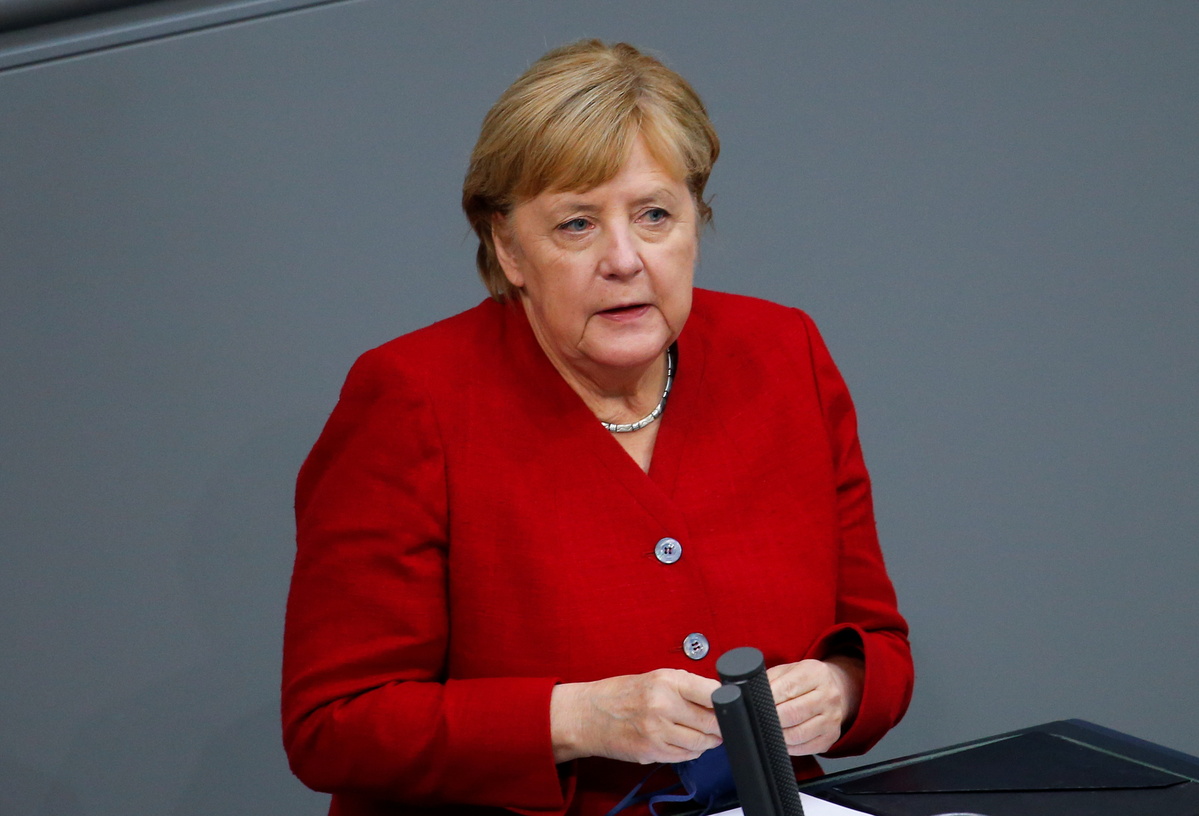Merkel, the mother of pragmatism, to bow out after 16 years


Elected politicians come and go, but their departures are seldom regretted as the end of an era. Not so Angela Merkel, who will step down following elections this month after 16 years as Germany's chancellor.
She steered her country, and Europe, through a series of crises with an aura of calm and good sense that convinced Germans they were in safe hands under the leadership of the woman they came to know as "mutti"-mother.
Now that she is preparing to go, even those not on her center-right part of the political spectrum admit they will be sorry to see her go.
The 67-year-old former scientist spent the first half of her life in East Germany before turning to politics after reunification in 1990.
As Chancellor from 2005, she offered Germans a sense of security and consistency, and reassured allies in Europe and beyond, of the benign intentions of post-reunification Germany.
According to her biographer, Stefan Kornelius, Merkel is not charismatic, but that was seen as an advantage by the German people. "They just want to have predictability and the guarantee that things are calm and under control," according to Kornelius. "She gave that guarantee for pretty much all of her rule."
As the end of her fourth and final term at the helm of coalition governments approaches, her Christian Democratic Union party has slumped in the polls and the race to succeed her in elections on September 26 is still wide-open.
Her ultimate legacy may well depend on what comes next.
Some critics acknowledge that Merkel successfully campaigned as an honest and reliable manager but that she lacked the vision to prepare the European Union's most influential country for the future.
Mutti also inspired the coinage "merkeln", a novel German verb that entered the popular vocabulary with the meaning of "to do nothing, make no decisions, issue no statements".
Her political opponents say she did not do enough to tackle the global problem of climate change or to renew Germany's often ailing infrastructure, which contrasts with the country's image of industrial efficiency.
She did, however, oversee intensified ties with China that saw German exports triple during her leadership. It was another sign of her pragmatism during a period that saw relations cool between some of her allies and Beijing.
Among the crises Merkel had to cope with during her long tenure were the global financial crisis of 2008 and the European debt crisis that followed.
Her response, while always ostensibly calm and considered, gave rise to criticism in southern Europe that she placed the interests of Germany and the richer countries of the continent's north above their less affluent partners.
In 2012, tens of thousands of demonstrators poured onto the streets of Athens to protest against the visit of the woman they held responsible for forcing Greece into poverty through her support for European Union-imposed austerity measures.
Three years later, she confronted a refugee crisis by throwing open Germany's doors to those fleeing the civil war in Syria and other conflicts in the Middle East and beyond. "We'll manage this," she said reassuringly as she welcomed up to a million new immigrants.
It won her praise from foreign leaders such as then US president Barack Obama. But it became a contentious issue in Germany itself, helping feed the rise of anti-immigrant right-wing parties and to dent her own popularity.
She was nevertheless highly regarded for standing up to Obama's successor, Donald Trump, whose scarcely veiled insults she fended off with her characteristic calm.
On the EU front, Merkel had to confront the prospect of the UK's Brexit referendum, having balked at handing further concessions to the UK's Conservative government in the hope of keeping the British inside the EU.
It was a common theme of her chancellorship-to maintain European unity in the face of trends that could undermine it. She determined that it was better to be tough with the UK rather than see other member states depart.
Her final challenge, shared with political leaders around the world, was the COVID-19 crisis. Although a fiscal conservative, Merkel and her French counterpart Emmanuel Macron made EU history in 2020 by proposing a 500 billion euro ($592 billion) COVID recovery fund for the hardest-hit regions and sectors of the EU.
It was the sort of pan-European bailout she had resisted for years. But, in the end, it was her fabled pragmatism that won out.
She worked closely with Macron on this and other issues, although the Frenchman sometimes appeared frustrated at her apparent lack of long-term vision for Europe. He faces his own campaign for reelection next year, with victory far from guaranteed.
Whatever political challenges Europe faces in the years ahead, its leaders, like the German people, will have to get used to getting by without the steady hand and comforting presence of mutti.
The author is a senior media consultant for China Daily UK.































